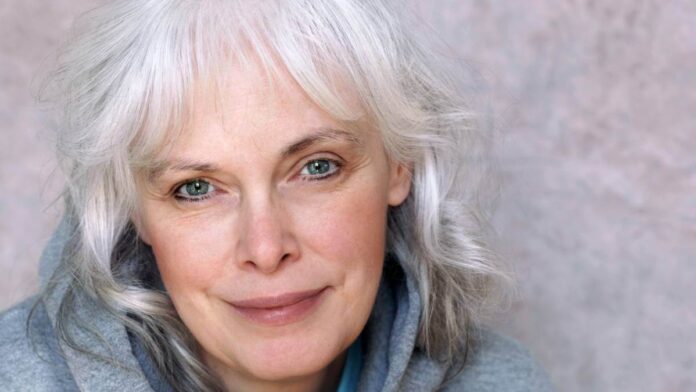At what point do you stop dyeing your hair and allow the grey to grow out?
Is it after you leave the workforce? Or is it something you consider while you are still working?
Many women ‘risk’ allowing natural grey hair to show in order to feel authentic, according to a new study.
Researchers from the University of Exeter surveyed women who chose not to dye their grey hair and found a ‘conflict’ between looking natural and being seen as competent.
Participants in the study – mostly from English-speaking countries – belonged to online groups whose members allowed their natural grey hair to show, and the researchers noted “solidarity and sisterhood” among these women.
“We are all constrained by society’s norms and expectations when it comes to appearance, but expectations are more rigorous for women – especially older women,” said lead author Vanessa Cecil, of the University of Exeter.
“The ‘old woman’ is an undesirable character in Western societies, being seen as incompetent or unpleasant – if she is seen at all.
Okay to go grey
“In our study, we wanted to understand why some women choose natural grey hair.
“In the face of impossible standards to be natural and remain youthful forever, these women are doing what they can to retain status.”
Although many reported negative consequences such as being ignored or treated as less competent, they also felt happier to be flying their “natural flag”, Ms Cecil said.
“We also found that women chose to compensate for going grey by using other beauty practices – so embracing grey isn’t the same as embracing looking old.
“Grey-haired and youthfully glamorous is one thing, but in Western societies it’s still not okay to look old.”
Responses from the 80 participants, members of two Facebook groups about transitioning to natural grey hair, suggested the key trade-off was between authenticity and being seen as competent.
Shamed
Women reported being shamed – including by family and friends – for being too natural (“let oneself go”) but also wanted to avoid looking as if they have tried too hard to conceal their age (“mutton dressed as lamb”).
Those who were supported by partners, family and friends had an “easier time” in the transition to grey, Ms Cecil said.
Many women have chosen natural grey hair during COVID lockdowns – both because hairdressers have been closed and due to spending less time in public, including at work.
“This appears to have accelerated a shift that was already happening, with more and more women choosing not to dye their hair,” Ms Cecil said.
Do you still dye your hair? Have you ever considered letting your grey hair grow out? Did you notice a difference in the way that you were treated? Share your thoughts in the comments section below.
Read more: When menopause makes work a struggle


I have been naturally grey for a long time. I don’t care what others think. I’m 61 and proud to be who I am. I have not noticed being treated differently at all.
Decided to let my hair go naturally grey when I turned 80 and hair dye affecting my scalp.
Family andfriends say itlooks good. I feel fine about it.
It’s a sad indictment on our society when naturally grey hair consigns women to the scrapheap but men don’t suffer the same indignity.
No, the ONLY time I ever dyed my hair, I suffered a severe allergic to the dye and ALL OF MY HAIR FELL OUT! It took ages for it to all regrow, so I much prefer being grey to being bald…Please everyone be aware hair dyes are NOT always harmless fun!
I’ve never dyed my hair, and have never ‘looked my age’. My natural hair colour is dark brown, and now, with grey hairs appearing, I’m still taken for around 50-55, and when I tell them I’m nearer to 70 than 60, they’re shocked.
I never wear make-up, as it ‘sweats off’ my face the minute I put it on, and leaves very big red blotches – an allergic reaction.